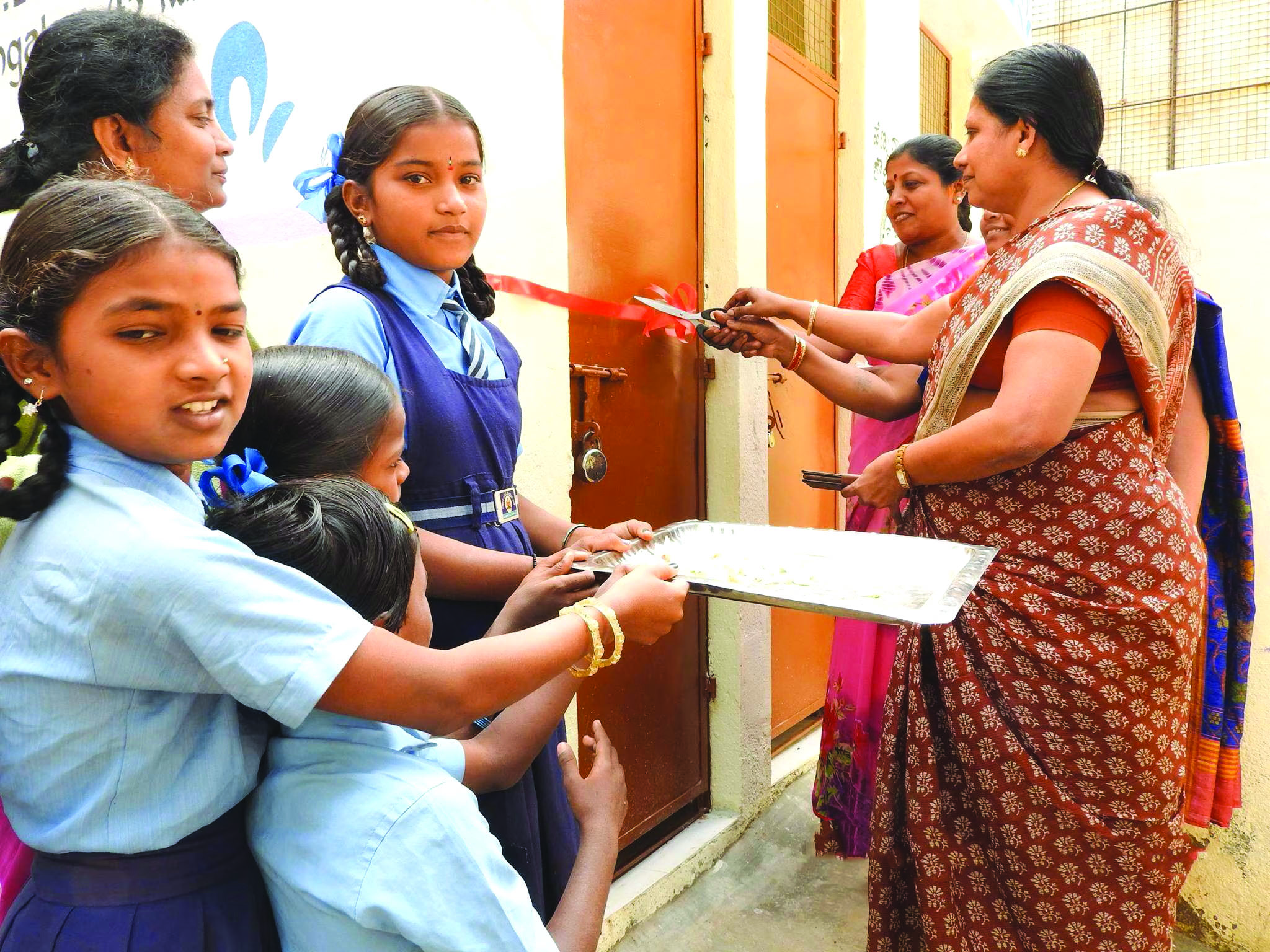Reshma Ravishanker (Bengaluru)

Girls toilet inauguration: caste shadow
Two back-to-back incidents of children in government schools being forced to clean toilets of their schools have provoked public outrage in the state. The first incident was reported on December 18 when photographs and video clips of some students of the Morarji Desai Residential School in Malur, Kolar district, cleansing toilets under a teacher’s supervision went viral.
Four days later on December 22, another incident of students cleaning toilets of a government higher primary school in Bengaluru was reported. After a flash protest by parents, the state government suspended the headmistress of the latter school.
Madhu Bangarappa, minister for school education and literacy of the state’s recently elected Congress government, strongly condemned both incidents. “The government will not mince words in criticising this. We will ensure that such incidents do not repeat again. I will act in the days to come. This is shameful,” he told media personnel.
However these incidents have raised the larger question of why children shouldn’t learn hygiene and sanitation in their early years by cleaning toilets of their own schools. Particularly, since unlike private institutions, government schools don’t employ housekeeping staff.
In the state’s 49,679 government schools the management is obliged to maintain the school campus including toilets. The state’s education ministry allocates every government school an annual maintenance sum dependent on student enrolment — Rs.20,000 per annum for schools with 50 students, Rs.28,000 for upto 100 students, Rs.33,000 for 500 students and Rs.45,000 for over 501 students. Principals/teachers are obliged to spread this modest annual provision to cover supply of drinking water, maintenance of libraries, playgrounds, laboratories and lavatories. Self-evidently this allocation is wholly inadequate for school campus and infrastructure maintenance.
Chandrashekar Nuggali, general secretary of the Karnataka State Primary School Teachers Association, met with chief minister Siddaramaiah on December 26 and submitted a memorandum demanding that the state government transfer the onus of maintenance of government schools including cleaning of toilets and classrooms, to local governments. “It’s not the job of teachers to maintain school infrastructure. We have demanded that in rural areas, the government entrust the responsibility of cleaning toilets either to the gram panchayat or direct private CSR (corporate social responsibility) funds to be used to maintain toilets in government schools. In urban areas such as Bengaluru, the city municipal corporation which has a large number of civic workers, should be given the additional responsibility of keeping government schools clean. Most government schools get a meagre Rs.8,000 per month for cleaning/maintenance and providing potable water. This is wholly insufficient,” says Nuggali.
Unsurprisingly, one of the most off-putting characteristics of government schools and a major cause of children — especially girl children — dropping out of senior school is lack of clean, usable and separate toilets for them. According to the Annual Status of Education Report 2022, 24.2 percent of the state’s government schools had “unusable” toilets and 8.5 percent didn’t have separate girls’ toilets as mandated by the Right of Children to Free and Compulsory Education (RTE) Act, 2009.
However these incidents and the indignant middle class reaction to it has prompted enlightened educators to discern a shadow of India’s shameful and ineradicable caste system under which low-end jobs such as disposal of civic waste and cleansing of toilets is off-loaded to lowest castes of the Hindu varna system.
“In countries such as Japan, it is routine for students to clean up their classrooms and toilets at the end of every day. If government schools don’t have sufficient funding, teachers should set an example to students and join with them to clean school premises. In this connection it’s pertinent to recall that Mahatma Gandhi had no problem with cleaning toilets. In his Sabarmati Ashram everyone including himself and wife Kasturba had toilet cleaning duties. If children learn to keep toilets clean from young age, the whole country will become cleaner and the cruel caste system will suffer a blow. All schools should encourage children from young age to take up cleanliness tasks including classroom and toilet cleansing,” says Prof. A.S. Seetharamu, former professor of education, Institute of Social & Economic change, Bengaluru.
But with the caste system deeply entrenched within the middle class and intelligentsia, this good advice is likely to fall on deaf ears. Emulating Japan’s excellent institution maintenance and cleansing model is a long way away.























